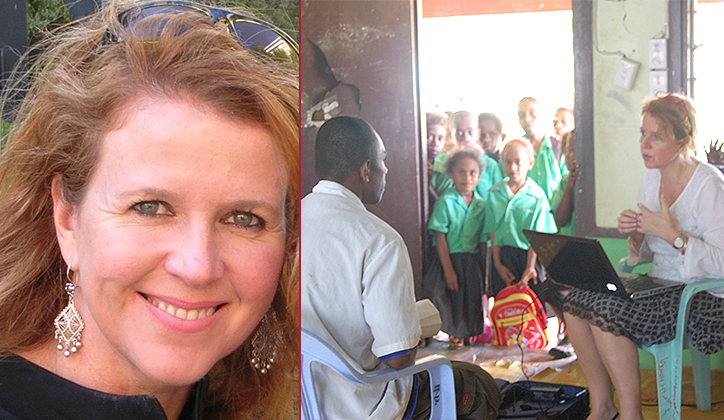Congratulations to Dr Kirsten Davies from the Department of Environmental Sciences and Macquarie Law School on her recent appointments as the Coordinating Lead Author for Chapter 2 of the Intergovernmental Science-Policy Platform on Biodiversity and Ecosystem Services (IPBES), and as an expert scoping a global assessment on biodiversity and ecosystem service for the IPBES work programme.
“Both of these appointments relate to a major three-year global research project conducted by the IPBES, and will involve mapping the state of biodiversity and ecosystem services required to support humankind until 2050,” said Dr Davies.
Dr Davies explained 2050 was selected as the time frame as it aligns with United Nations Sustainable Development Goals.
“As the planet’s population is growing, natural resources are being depleted and climate change is threatening the future of the earth. This assessment is critical as a process of quantifying the state of ecosystems that support human life,” she said.
Dr Davies’ first role will require research across the Asia-Pacific region.
“I’ll work with colleagues from universities and government agencies across the region as we collate and report on the available data,” she said. “My second role will involve scoping the global assessment, which will include the regional assessment reports and creating a global picture.”
Dr Davies said this is the first time a global project of this kind has been attempted and will bring many challenges.
“I envisage many smaller nations in the Asia-Pacific region may not have the longitudinal data, meaning the study may become, in part, a gap analysis,” she said. “The identification of any gaps will be important for future research and assessments.”
The role of Coordinating Lead Author will present challenges for Dr Davies too.
“Throughout my career I’ve worked on many large projects, but not across nations on a project of this scale,” she said.
Looking forward, Dr Davies said her appointments will help further Macquarie’s international research reputation and profile, and is grateful for the support and encouragement she has received from the University regarding her appointments.
“This project will allow me to work in partnership with other universities across the world and provide opportunities for future research collaborations,” she said. “It will contribute to the expansion of our Asia-Pacific networks and relationships, adding to our long-standing regional reputation and activities.”

